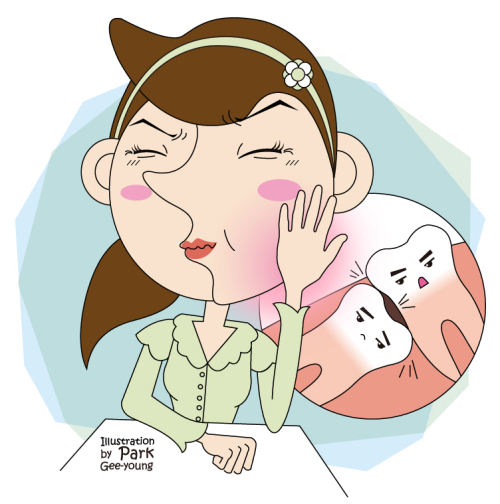
What is an impacted tooth?
Anthropologists note that the much softer modern diet could be responsible for the withdrawal or elimination of a stimulus that excites an adequate development of the human jaws and excessive wear of teeth, which would provide sufficient room for the normal eruption of all the teeth.
The modern diet does not require a decided effort in mastication, so growth stimulus of the jaws, and drifting of the teeth to compensate for the wear ensures available space for most wisdom teeth to erupt by adolescence is lost.
Wisdom teeth can encounter trouble erupting and become impacted, when there is a lack of space in the dental arch. Teeth that remain partially or completely trapped within the soft tissue and /or the jawbone are termed “impacted teeth.”
How serious is an impacted tooth?
Wisdom teeth that lean toward the second molars make those teeth more vulnerable to decay by entrapping plaque and debris, and then can cause pain, swelling and/or infection. They may also crowd or damage adjacent teeth or roots.
More serious problems may occur if the sac surrounding the impacted tooth becomes filled with fluid and enlarges to form a cyst. As the cyst grows it may hollow out the jaw and permanently damage adjacent teeth, the surrounding bone and nerves. Rarely, if a cyst is not treated, a tumor may develop from its walls and a more serious surgical procedure may be required to remove it. Some impacted teeth allow for an opening for bacteria to enter around the tooth and cause an infection, which results in pain, swelling, jaw stiffness and general illness.
Partially erupted teeth are more prone to tooth decay and gum disease because their hard-to-reach location and awkward positioning makes brushing and flossing difficult.
When should I have my wisdom teeth removed?
Wisdom teeth are easier to remove when the patient is younger, since their roots are not completely formed, the surrounding bone is softer, and there is less chance of damaging nearby nerves or other structures.
Removal of wisdom teeth at a later age becomes more complicated as the roots have fully developed (may involve the nerve), and the jawbone is denser. It isn’t wise to wait until your wisdom teeth start to bother you.
Not all problems related to third molars are painful or visible. Damage can occur without your being aware of it. In general, earlier removal of wisdom teeth results in a less complicated healing process.
Recent studies strongly recommend that wisdom teeth be removed by the time the patient is a young adult in order to prevent future problems and to ensure optimal healing. The researchers found that older patients may be at greater risk for disease, including periodontitis, in the tissues surrounding the third molars and adjacent teeth.
Periodontal infections may affect your general health.
What happens during surgery?
Most wisdom tooth extractions are performed in the oral and maxillofacial surgery office under local anesthesia, intravenous sedation or general anesthesia. Before surgery, your oral and maxillofacial surgeon will discuss with you what to expect. This is a good time to ask questions or express your concerns.
It is especially important to let the doctor know about any illness you have and medications you are taking.
The relative ease with which a wisdom tooth may be removed depends on several conditions, including the position of the tooth and root development. Impacted wisdom teeth may require a more involved surgical procedure.
What happens after surgery?
After having your wisdom teeth removed, you may experience some swelling and mild discomfort, which are part of the normal healing process. Cold compresses may help decrease the swelling, and medication can help manage the discomfort. Foods should be restricted to a liquid diet until all the numbness from the anesthesia has worn off.
You may be instructed to modify your diet to soft foods following surgery and later progress to more normal foods. Two of the complications after having your wisdom teeth removed include: dry socket and paresthesia (numbness). Dry socket typically occurs three or four days following the extraction and is accompanied by pain (ranging from dull to moderate to severe) and a foul mouth odor because the forming of blood clot has failed in the tooth socket or the formed blood clot has been dislodged.
Paresthesia is a less frequently occurring complication. Wisdom teeth entrapped in the jawbone are often close to nerves. Sometimes these nerves can be bruised or damaged during the tooth removal process. The result is a numbness of the tongue, lip or chin that can last a few days, weeks, months, or may even be permanent.

By Hong Jong-rak
The author is an associate professor at Department of Oral and Maxillofacial Surgery of Samsung Medical Center. ― Ed.
-
Articles by Korea Herald



















